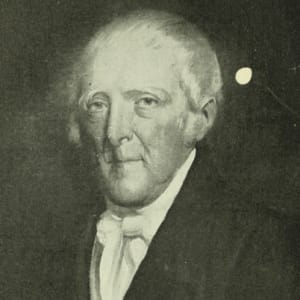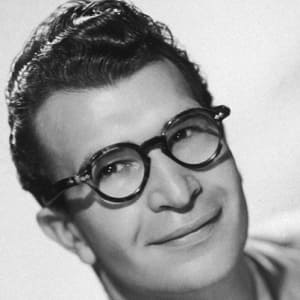
Ray Davies
Lead singer for The Kinks, Ray Davies is known for his decades-long career in rock, hits like ‘Lola,’and ongoing feuds with brother and bandmate Dave Davies.
Synopsis
Ray Davies was born in London on June 21, 1944. He played his first gig with his brother, Dave Davies, at 16, and at 18 they formed the band that would become The Kinks. As the lead singer and songwriter, Davies wrote hits like "You Really Got Me" and "Lola" that earned the group a spot in the Rock and Roll Hall of Fame. In spite of feuds between the brothers, the band succeeded for 30 years.
Early Life and Career
Raymond "Ray" Douglas Davies was born on June 21, 1944, in London, England, the seventh child and first boy of Fred and Annie Davies. He got his first guitar from his oldest sister, Renee, at age 13 and his brother-in-law gave him guitar lessons. At 16, he performed his first show with his younger brother Dave, and the following year, they recruited two classmates to form their first band, The Ray Davies Quartet.
Ray attended Hornsey College of Art, but dropped out and returned home to resurrect the band. Fellow classmate Rod Stewart joined the band briefly, and over the next few years, they changed their name to the Ramrods, then Bollweevils and The Ravens, before signing with Pye Records in 1964 and settling on The Kinks.
The Kinks
In 1964, The Kinks released their debut album, which landed at No. 4 on the charts with songs like "You Really Got Me," and "All Day and All of the Night." The following year, they embarked on a tour of Singapore, Hong Kong and Australia. The band stopped over in India, and Davies's experience there led him to write the song "See My Friends," which incorporated Indian styles and was hailed as "extremely influential" by his musical peers.
Conflict was inherent to The Kinks. Davies and his brother had a contentious relationship from childhood, and their tension could both fuel and disrupt their musical pursuits. They weren't the only ones fighting: While on tour in 1965, drummer Mick Avory knocked Dave Davies unconscious in the middle of a show, after Dave Davies insulted him and kicked over his drum set.
After this, they became known for rowdy on-stage antics, and in July the American Federation of Musicians refused permits for members of The Kinks to appear in concert in the United States. Later that year, Davies suffered a nervous breakdown, throwing the band's future into question. He recovered in time to release The Kink Kontroversy, the band's third album.
After being denied entry into the United States for four years, Davies flew to Los Angeles to negotiate the band's re-entry into America, and shortly after, he wrote and released "Lola," a song he's now known for. He later had to change the song's lyrics from "Coca-Cola" to "cherry cola" in order to get airplay on the BBC.
Two years later, the band set up their recording studio, Konk, and Ray Davies shifted gears creatively. He started writing theatrical-style music, like the rock opera Preservation, and later wrote Starmaker, a musical for Granada Television, which transformed into the album, The Kinks Present a Soap Opera. This lasted until band switched labels from RCA to Arista in 1976, when Davies abandoned his theatrical style and The Kinks morphed into a "stadium rock" band.
Their 1977 release, Sleepwalker, kicked off another era of straightforward rock music that earned them a packed U.S. tour schedule, and in 1981 they sold out Madison Square Garden. The band continued to record and tour for 15 years, and was inducted into the Rock and Roll Hall of Fame in 1990. The Kinks played their last concert at the Norwegian Wood Festival in Oslo, in June of 1996.
Solo Career
Although Davies technically released his first solo album in 1985—Return to Waterloo—the bulk of his solo work came after The Kinks broke up. He released four albums between 1998 and 2009: The Storyteller, Other People's Lives, Working Man's Café and The Kinks Choral Collection.
Throughout his career, Davies has also acted and written musicals and choral pieces. Additionally, he published his autobiography, X-Ray, in 1994.
Personal Life
Davies married Rasa Didzeptris in 1964, and they had two daughters. When she left him in 1973, he attempted suicide by overdosin on pills. He remarried three years later, but divorced and had a long-term involvement with Chryssie Hynde, lead singer of the Pretenders, with whom he had a daughter in 1983. He married and divorced for a third time in the 1980s, and had his fourth daughter.
Davies was awarded a CBE by Queen Elizabeth II in 2004, for "services to music."




